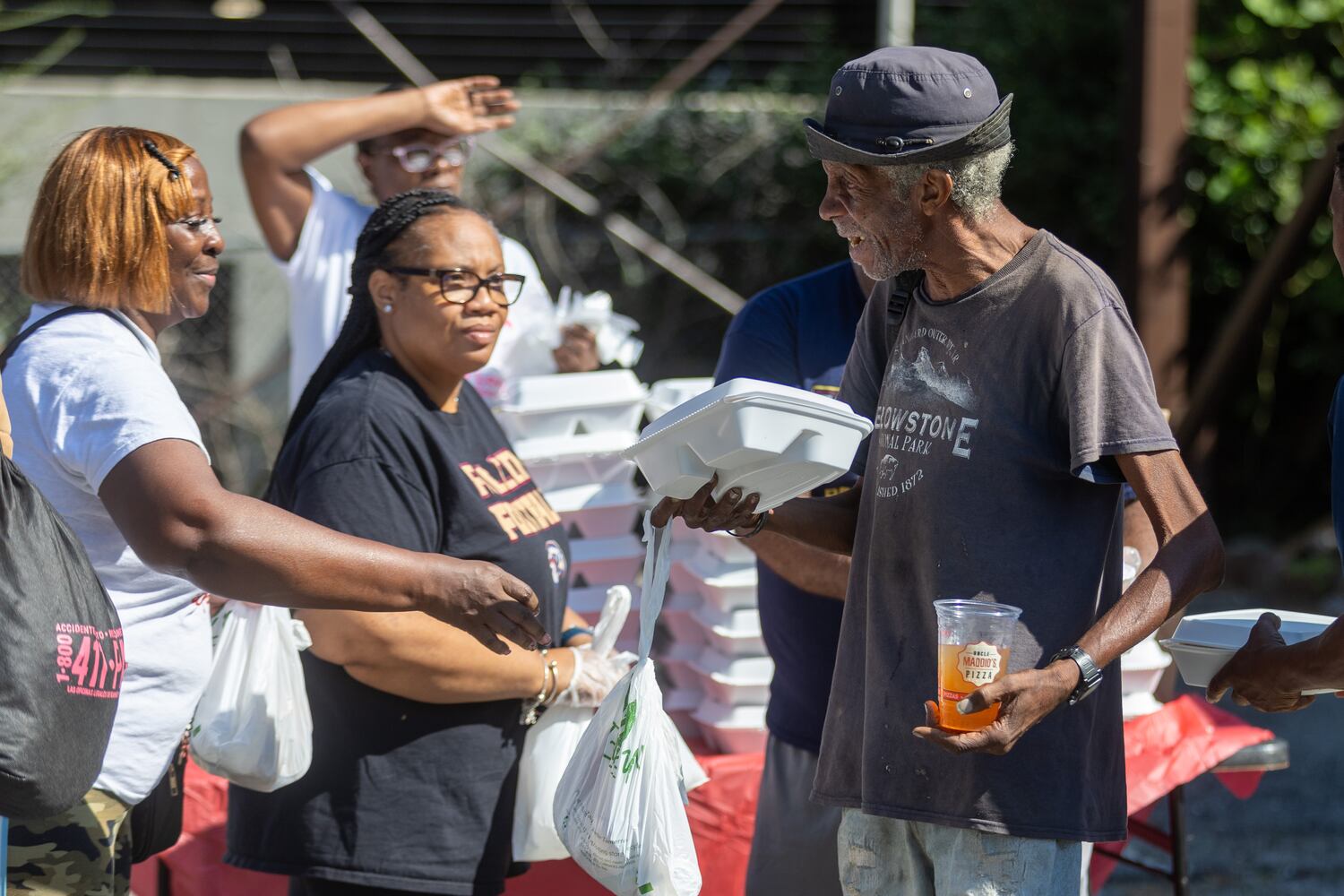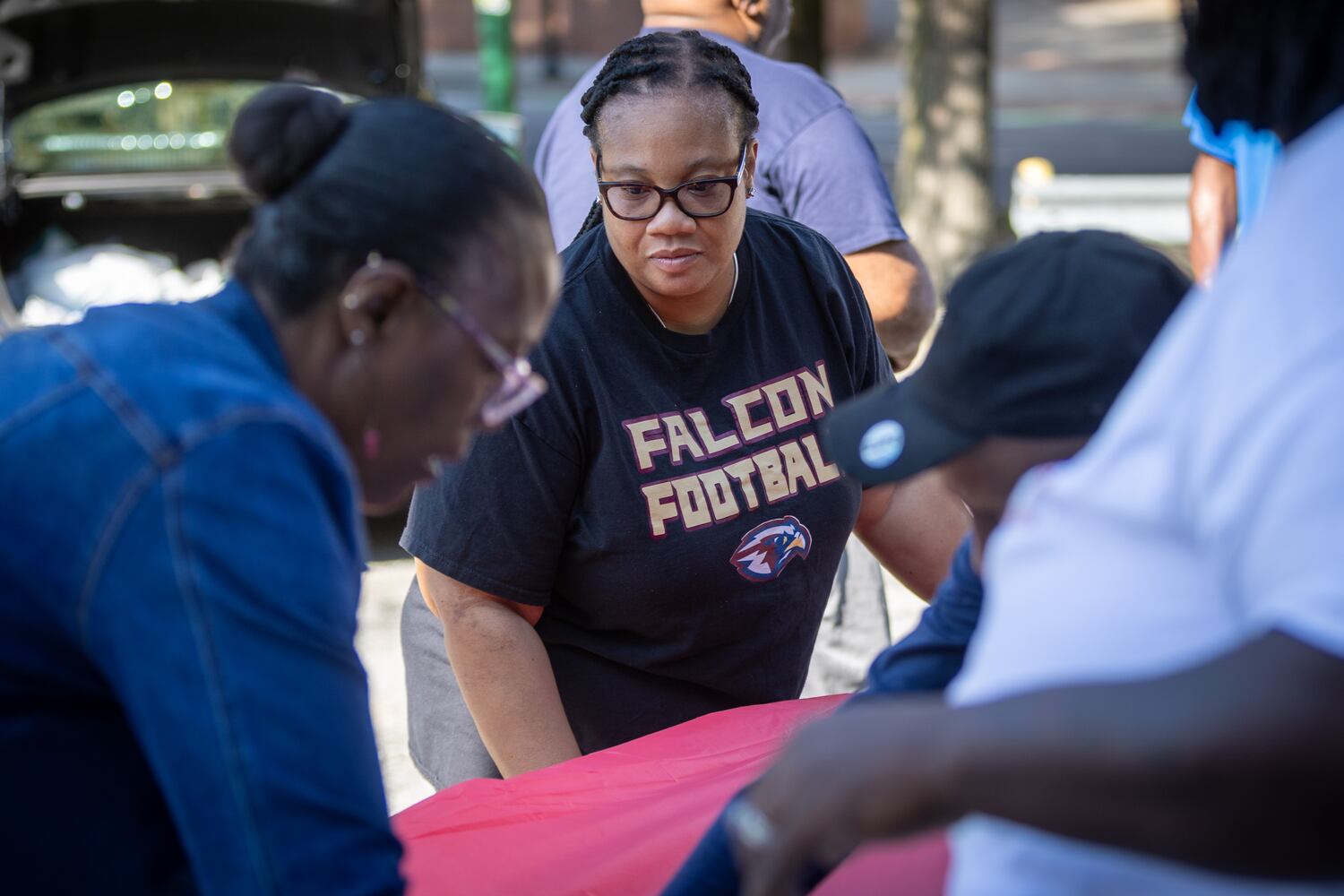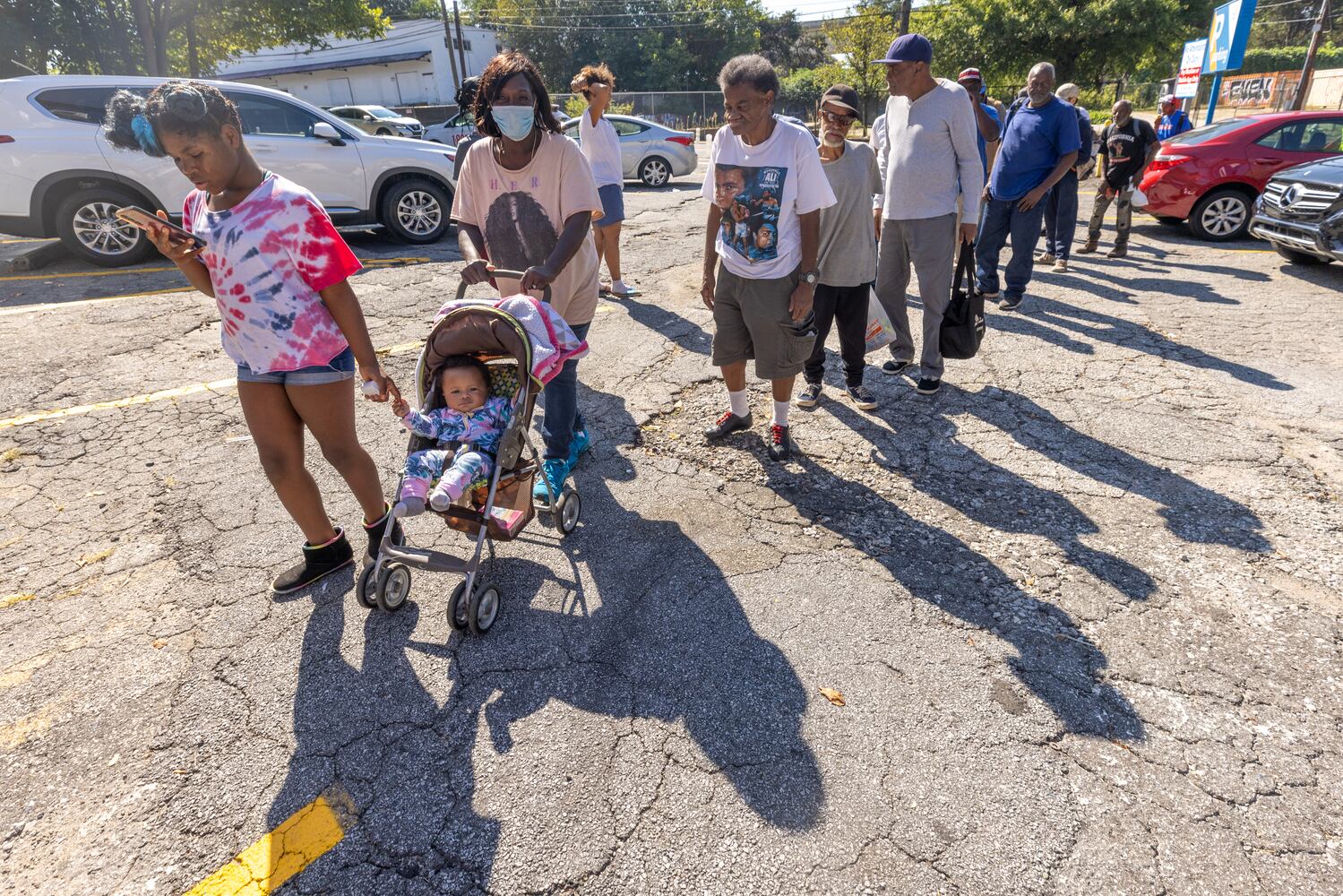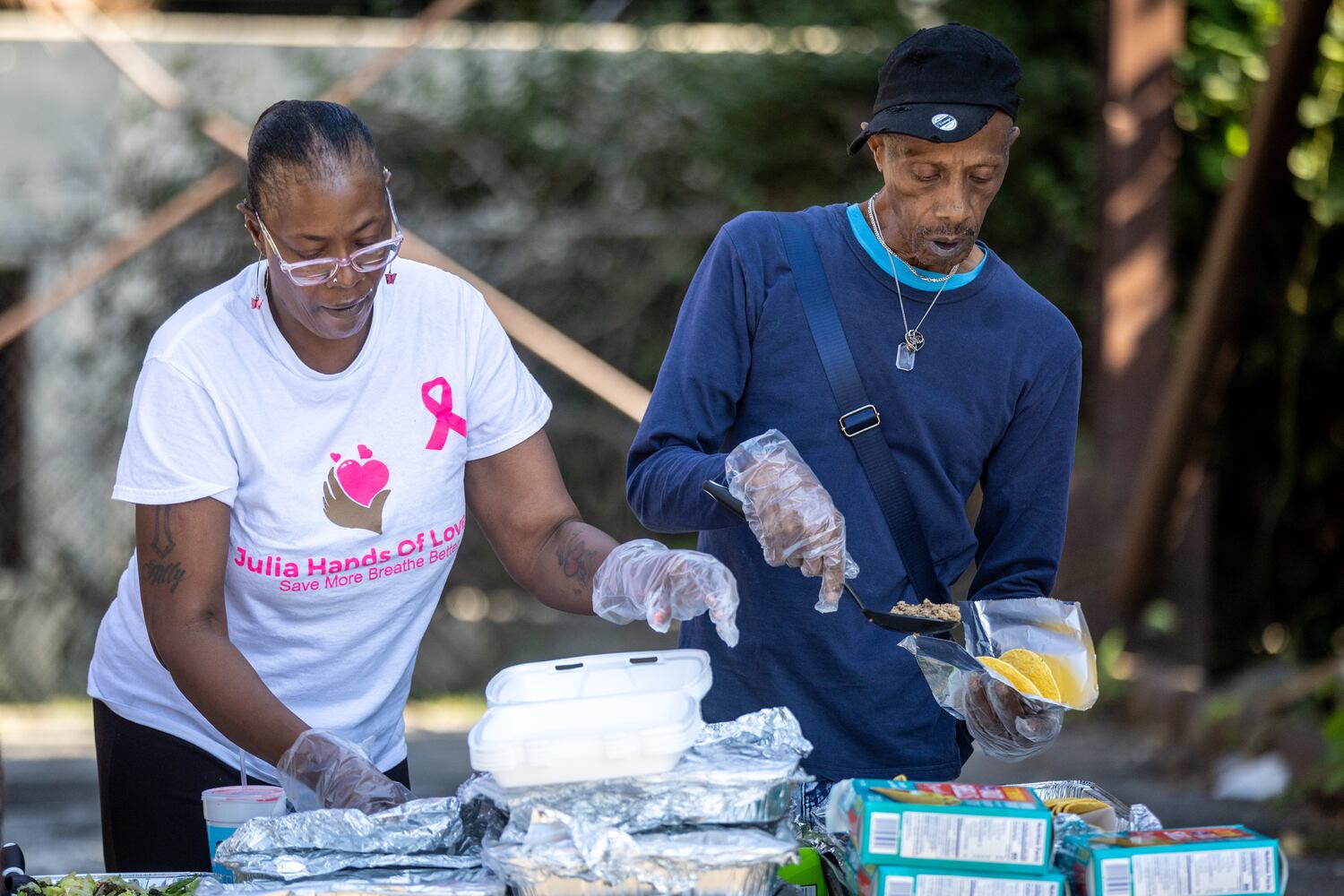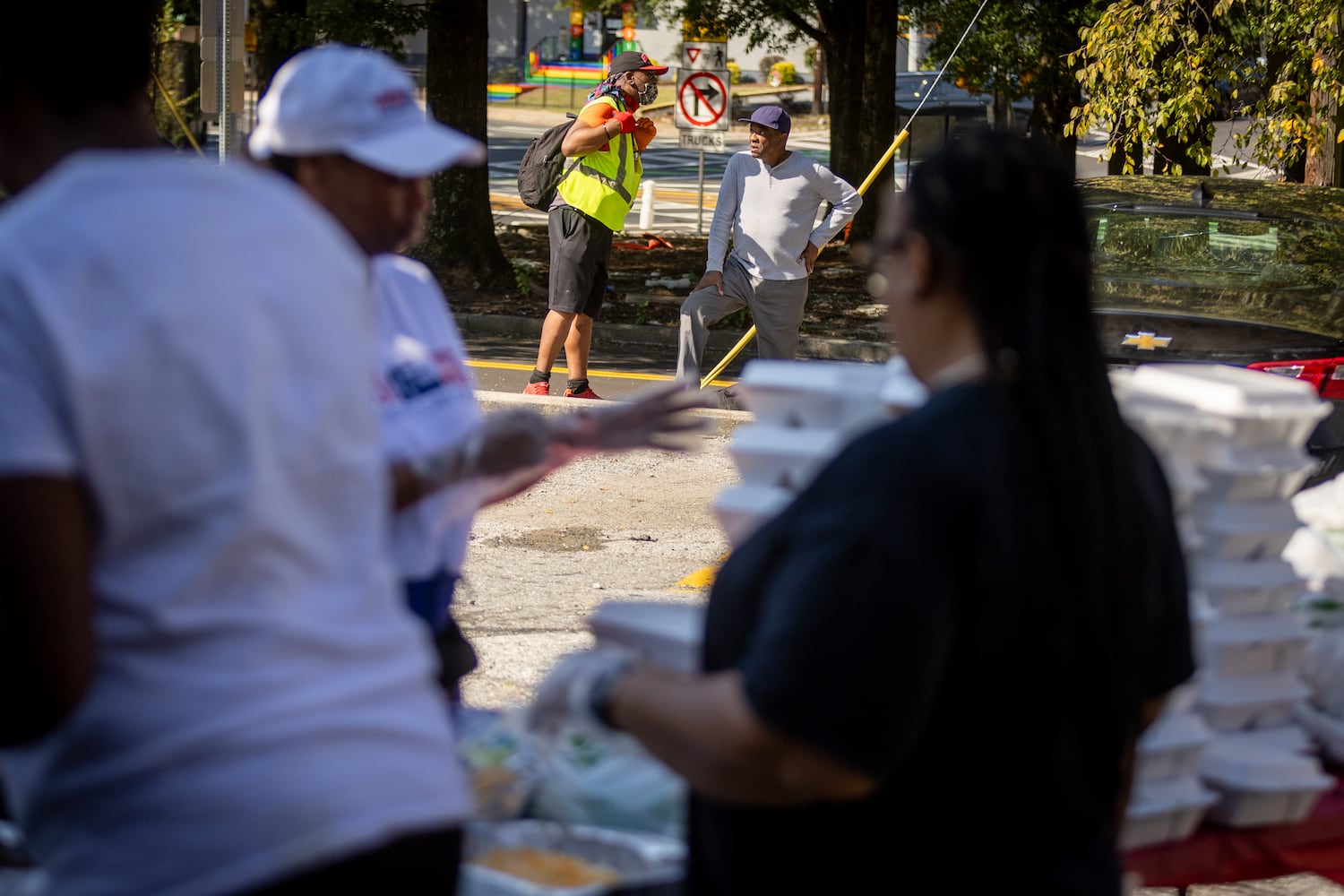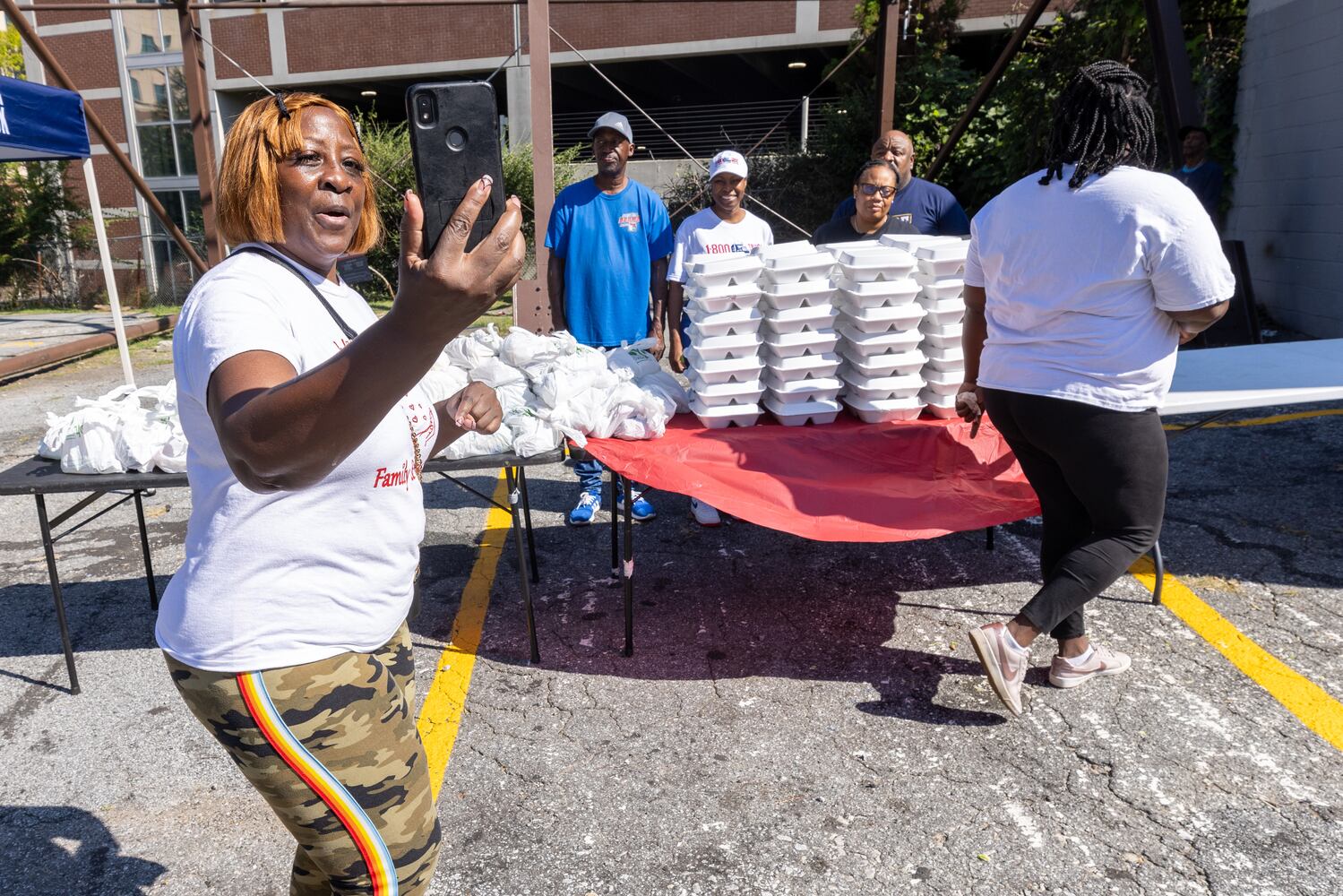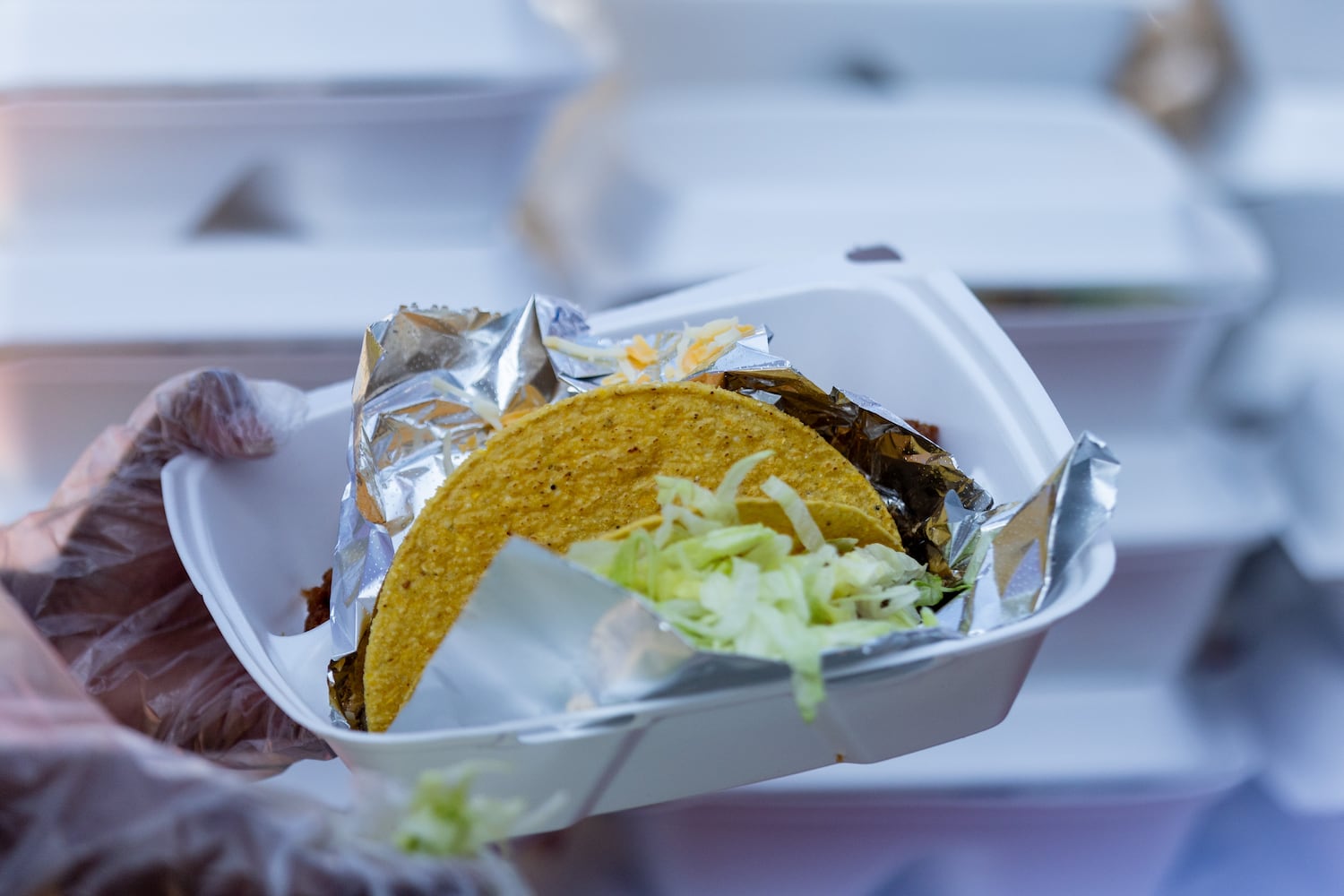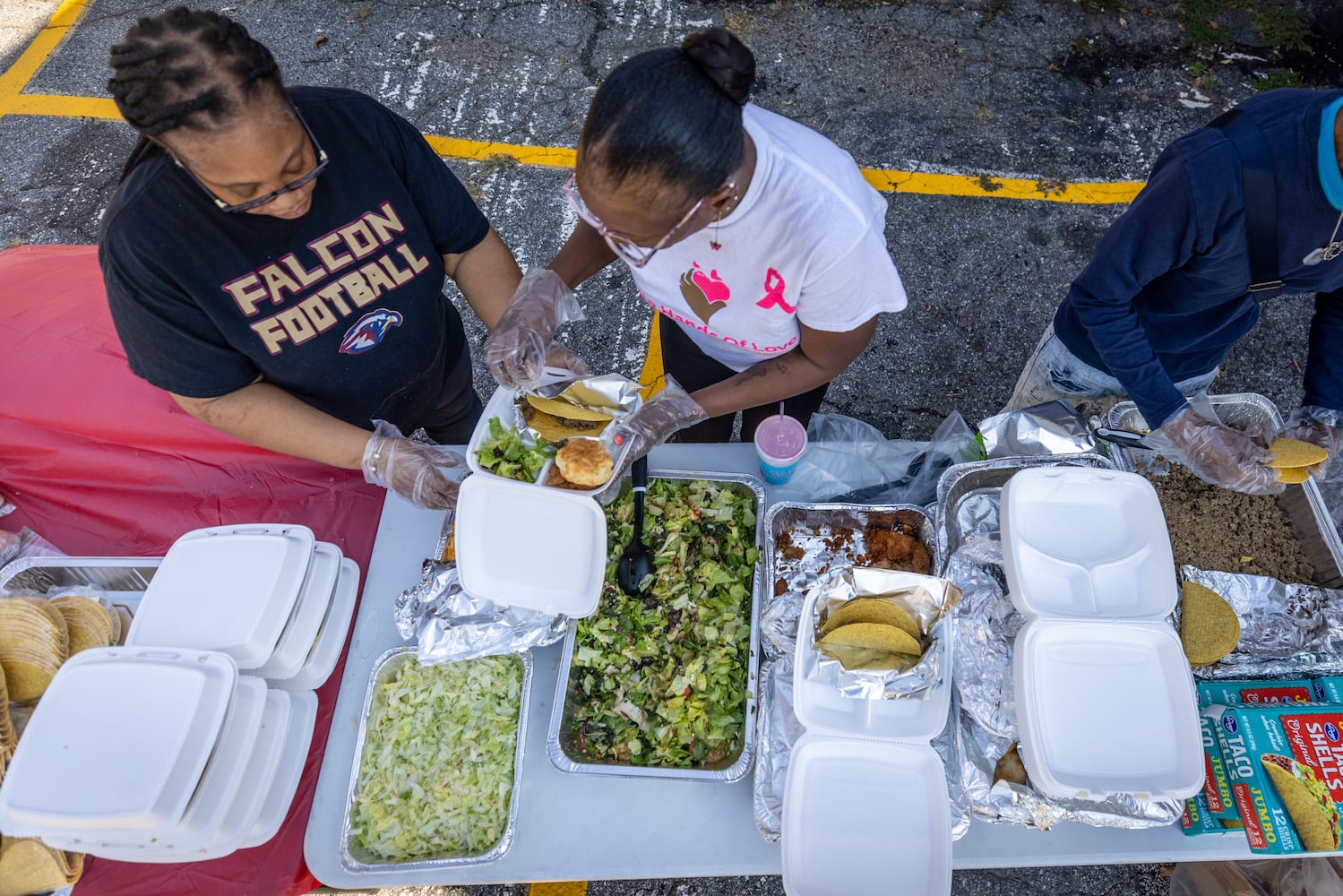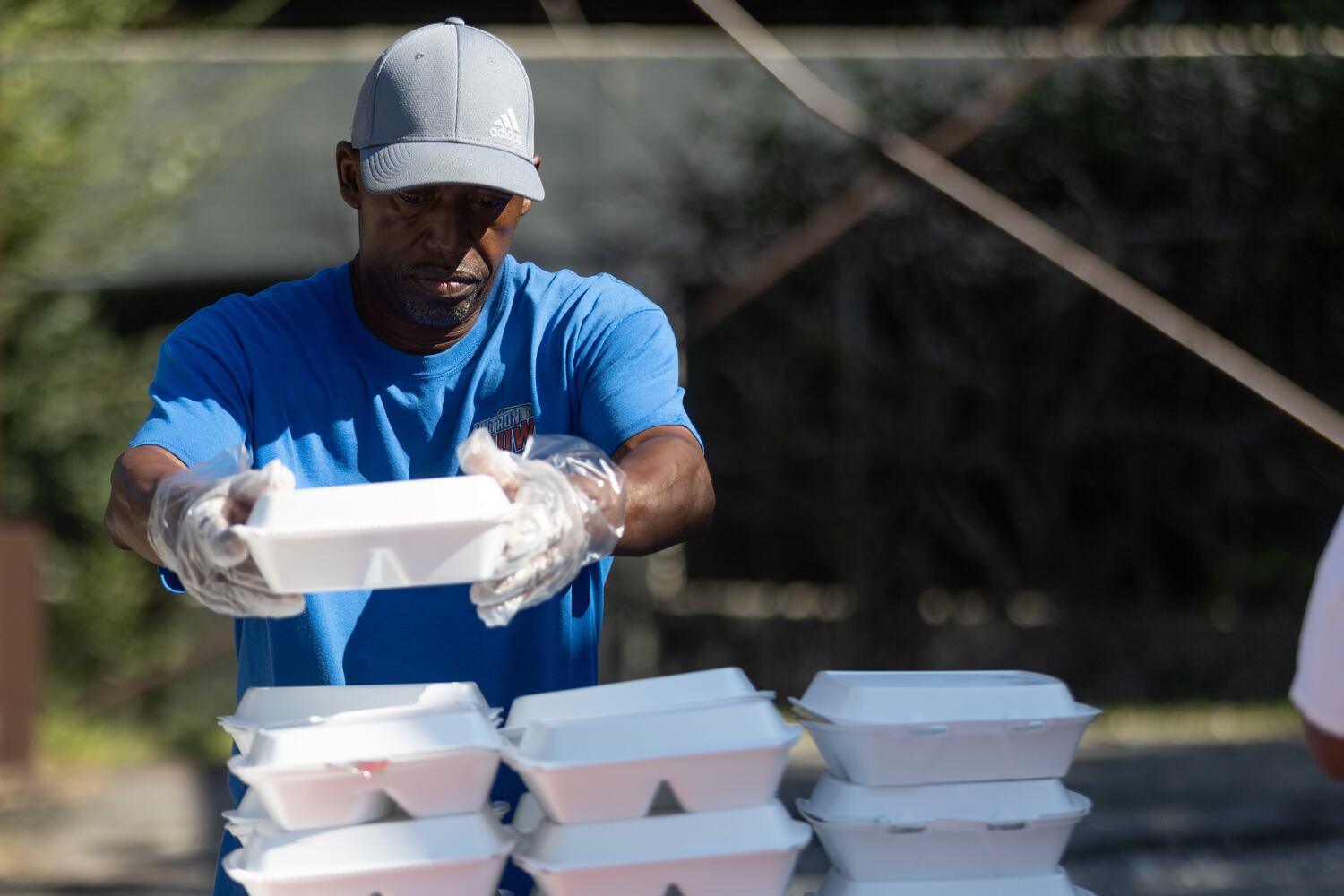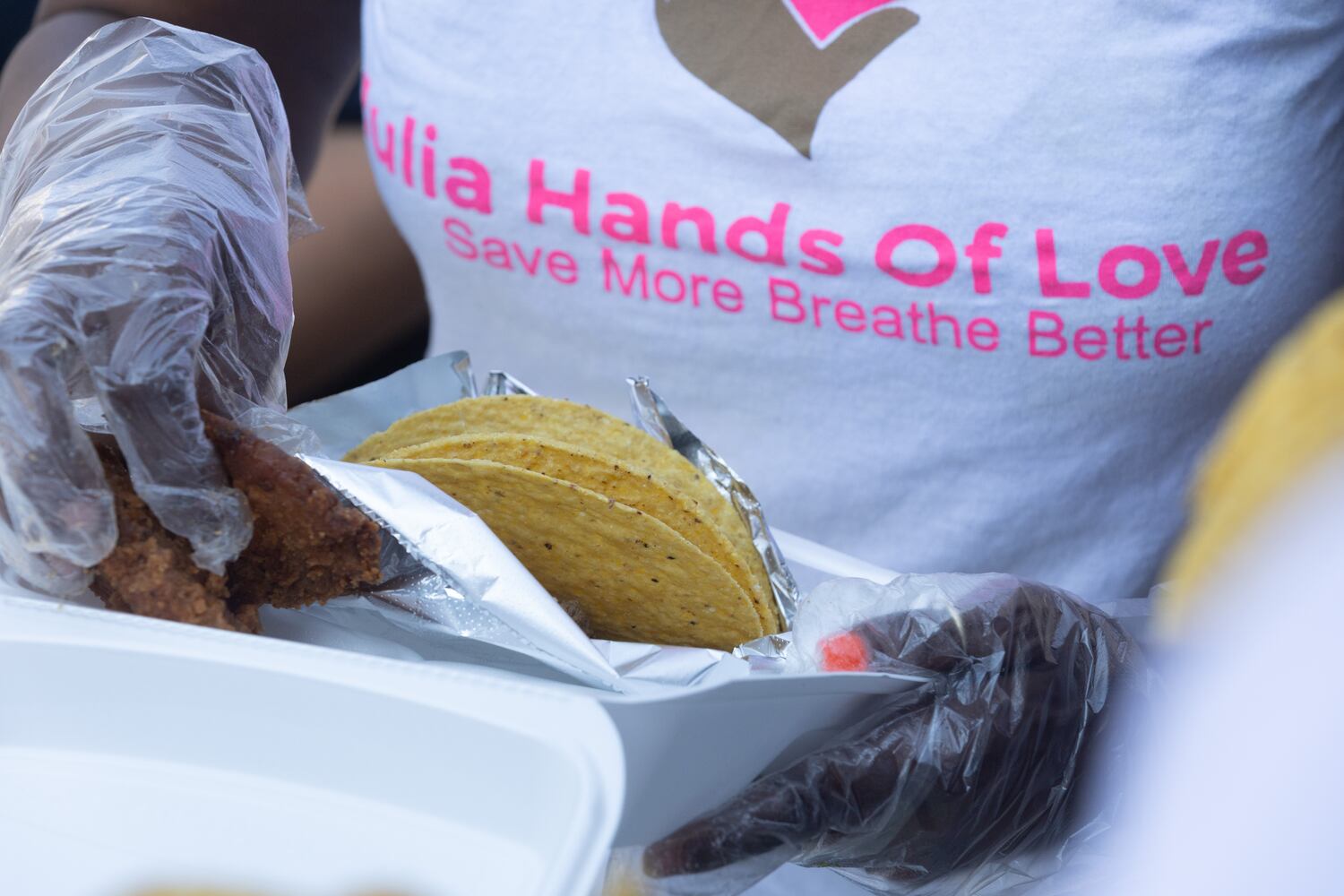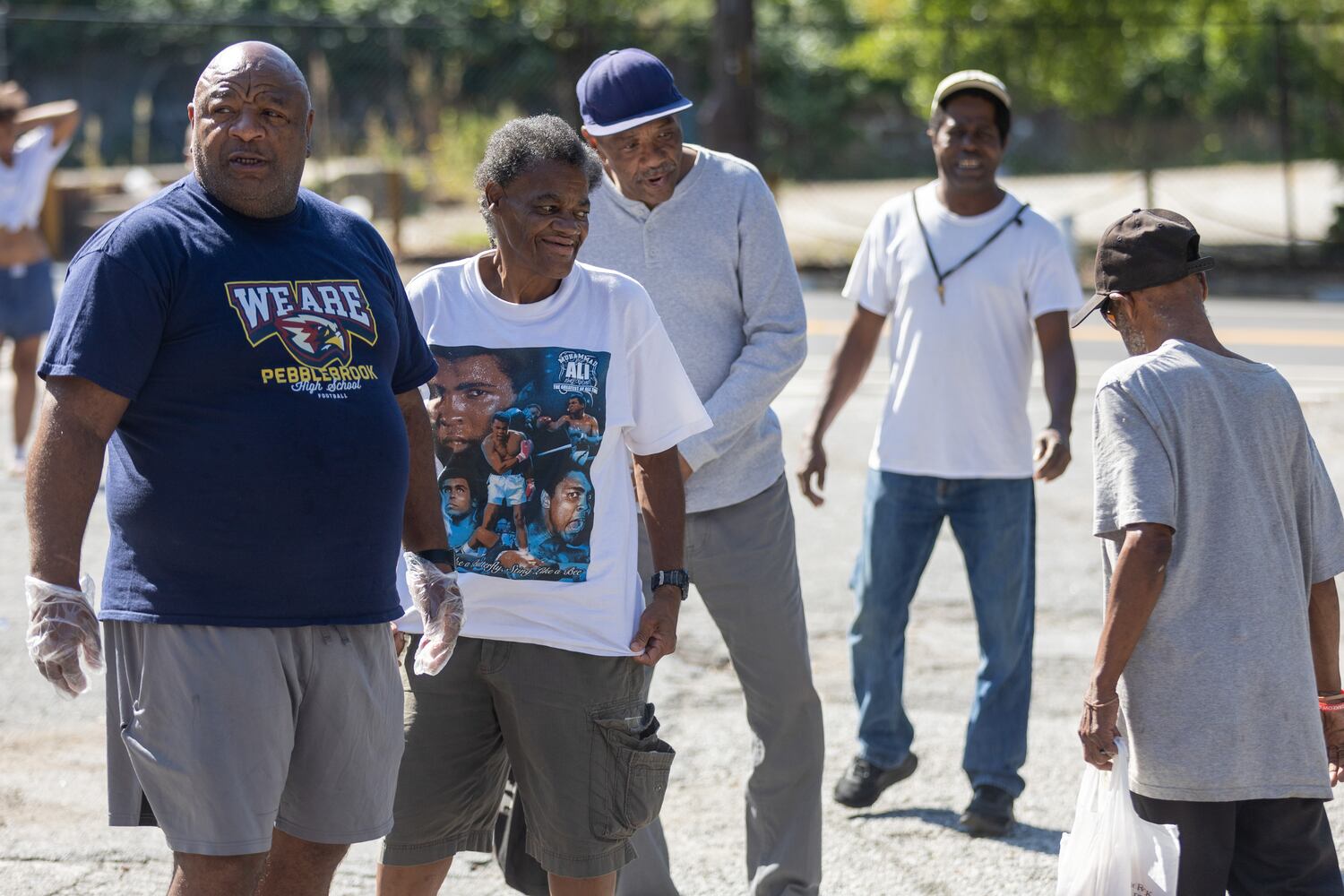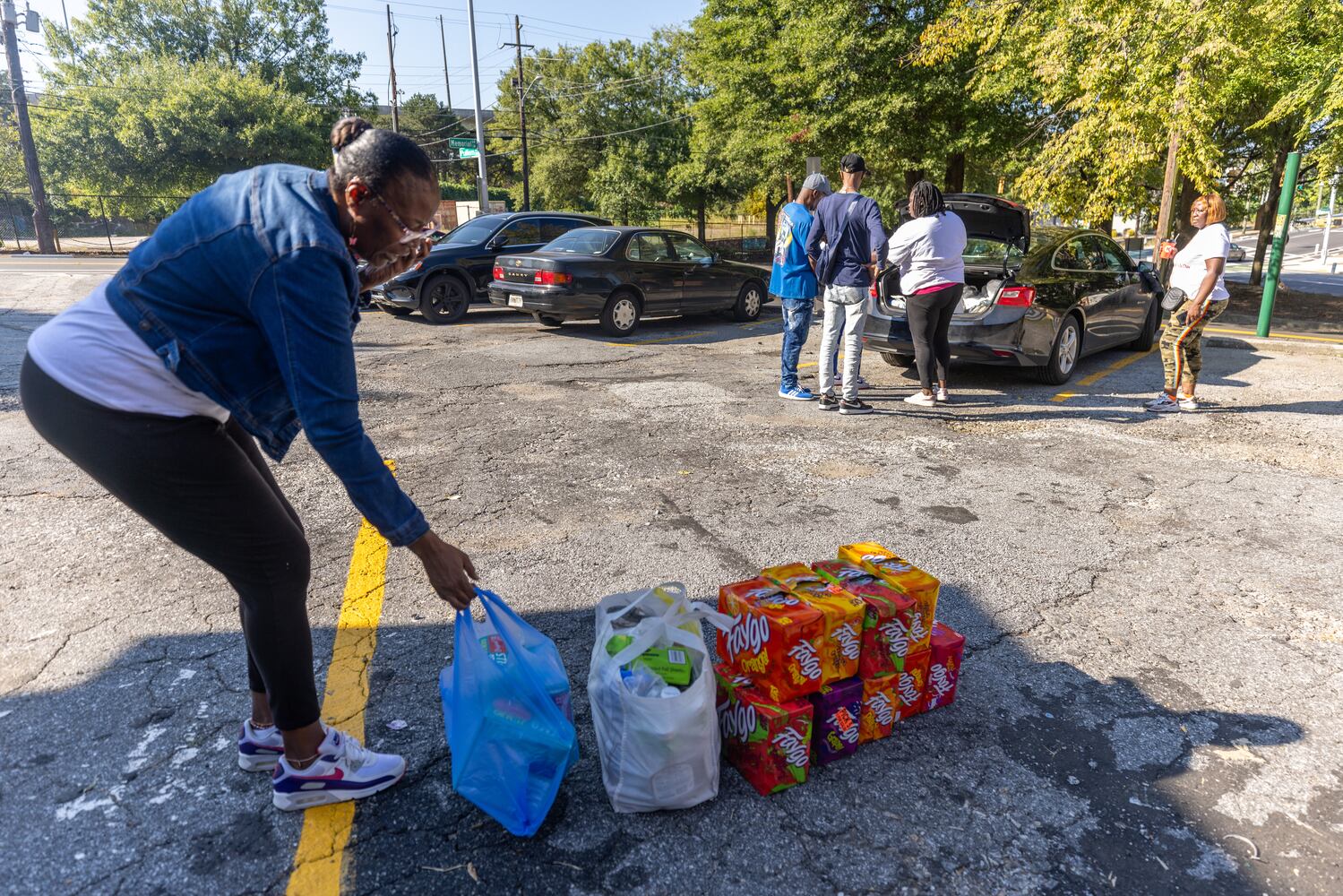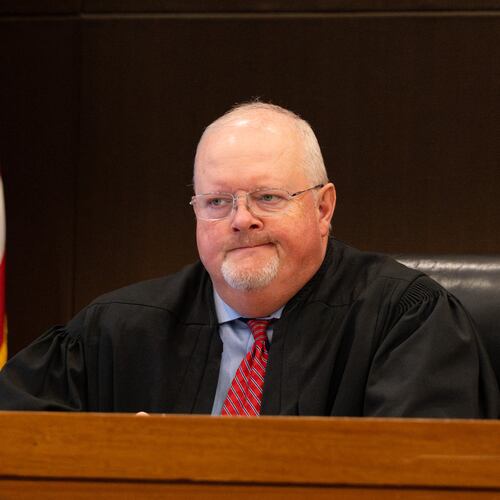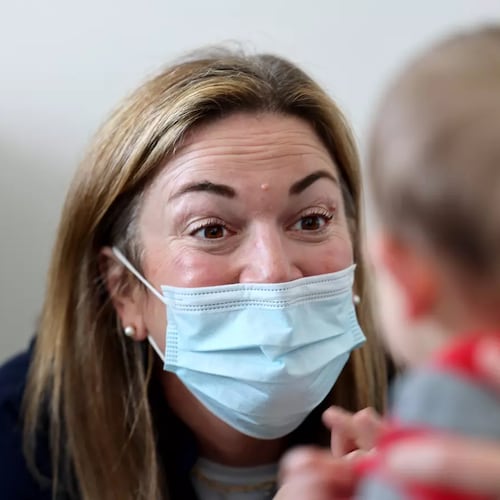At a corner of asphalt off Memorial Drive this Saturday, Queon Holmes’ folding tables were set up, piled with to-go food in styrofoam and paper boxes. Holmes, a couple of her 14 aunts and uncles, and a family friend were gathered around, finishing dividing up the chicken biscuits, tacos and lettuce topping.
Behind and around them scores of people had gathered a few yards away on the asphalt, or sitting on the grassy easement just outside the parking lot fence. They were there to take home a lunch from a family that’s been sharing with the community for three generations at least.
Finally Holmes’ aunt Jackie told everyone to line up. They did. Jackie said a prayer at the top of her lungs. And then people came for the food.
Credit: Steve Schaefer
Credit: Steve Schaefer
James Osborne was in the line. “The best part about it is that you can feel the love,” Osborne said as he walked away. He said he’s been homeless about 12 or 15 years.
Unlike the major Georgia homeless organizations that feed regular populations daily, Holmes’ is a small family operation run out of her little black sedan. They distribute meals a couple times a month, and hold occasional giveaway events for the needy at the holidays or back-to-school time. Sometimes they distribute blankets.
To make her own ends meet Holmes drives Uber. For funding the charity, her nonprofit takes donations. For the last three years, Holmes said, a personal injury law firm partially funds the work. At a tent table next to the lunch table, the law firm handed out sturdy plastic tote bags and bottles of sanitizer to the attendees, imprinted with the firm’s logo and phone number.
A smoke shop lends them use of its parking lot.
It all goes back to Holmes’ grandmother, Julia. After Julia died in 2008, Holmes was gutted. So was her mom.
Julia “had a place where people used to come, get food and rest. My grandmom was like the safe person. The safe house. She never judged,” Queon said. “Everybody who know her knows she was about love.”
Credit: Steve Schaefer
Credit: Steve Schaefer
They weren’t well-off. First that home was a apartment in the Bankhead area of Atlanta, then in the East Lake Meadows public housing development.
Holmes decided to start an organization to give back the way her grandmother did. In the eyes of Holmes’ mom, Pequena Thornton, Holmes’ charity saved her from destructive grief. It allowed her to be productive again, cooking for the events.
Pequena’s brother Marion Thornton is Julia’s oldest living child, and remembers the home well. “My momma, you could say was like a cat lady, but she was a person lady,” said Marion Thornton, now 65.
“Every time you’d go in there there’d be someone new,” he said. There was already 14 of us. There were people who they had everything but they preferred to come to our house.” In addition to her own 14 kids, the family says, Julia and her husband adopted two more, and also fostered more.
Marion Thornton recalls wanting to go home with schoolmates who had things at their homes that he didn’t have and might have wanted. Now he realizes, he says, that instead, his mom gave people not what they wanted, but what they needed.
Holmes’ registered her charity work as a nonprofit called Julia Hands of Love.
On Saturday, the people took their meals, maybe the swag, and then dispersed quickly. Down a sidewalk man pushed an older person on a rolling walker. A woman rolled away a baby stroller and walked a small child. People strolled across streets, into parks, into side streets. Almost as soon as the crowd convened, it was gone.
After it was all over, Queon said she felt great.
“I’m all grateful because I was happy to feed them on that day,” like her grandmother would have. “It’s doing everything to make her proud.”
About the Author
Keep Reading
The Latest
Featured
